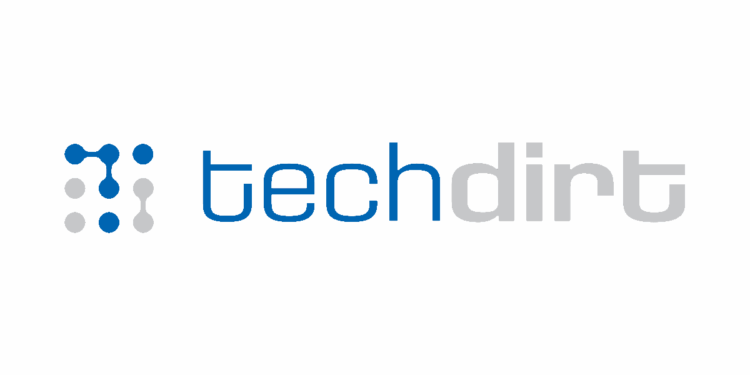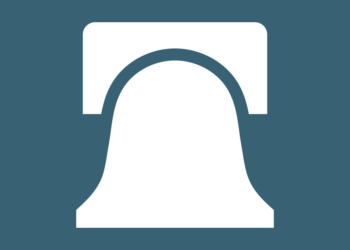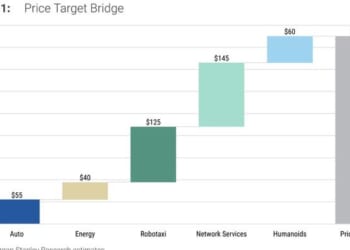from the institutional-neutrality-is-just-cowardice-with-better-branding dept
Mike Brock’s piece on Sequoia Capital last week laid out a pretty damning case study: a well-respected COO complains about a partner’s Islamophobic posts, senior leadership invokes “institutional neutrality” and declines to act, she resigns, he stays because he made them billions on SpaceX. Brock correctly calls this out as a choice, not neutrality—a calculation about whose value to the firm matters more.
The thing that struck me about Brock’s piece is that it highlights how there’s a broader pattern here: institutional cowardice from organizations that spout high-minded ideals as a shield to explain their refusal to make a clear decision, while ignoring that doing so is a very real choice with very real consequences.
That’s worth highlighting, because we keep seeing it play out in nearly identical ways. Whether it’s a venture capital firm or a social media platform, the playbook is the same: invoke “neutrality” or “free speech” as a shield, refuse to take a clear stance on bigoted behavior, and then act shocked when the people being targeted decide they don’t want to stick around.
This is the Nazi bar problem, and it keeps happening because people in positions of power either don’t understand it or don’t want to.
If you’re not familiar with the Nazi bar analogy, it comes from a story about a bartender who learned the hard way that if you don’t kick out the first Nazi who walks in, you end up running a Nazi bar. Not because you’re a Nazi yourself, but because once word gets out that Nazis are welcome, they keep coming back and bringing friends. And everyone else? They stop showing up. Because who wants to drink at the Nazi bar?
The key insight—the one that keeps getting missed—is that claiming “neutrality” in these situations isn’t actually neutral. It’s a choice. You’re choosing to prioritize the speech and presence of the people spewing bigotry over the speech and presence of the people being targeted by it. And that second part is what everyone claiming to be “neutral” conveniently ignores.
We saw this exact dynamic play out with Substack last year. CEO Chris Best went on Nilay Patel’s podcast and repeatedly refused to answer straightforward questions about whether Substack would host overtly racist content. Nilay asked him point-blank: if someone says “we should not allow brown people in the country,” is that allowed on Substack?
Best wouldn’t answer. He kept deflecting to vague principles about “freedom of speech” and “freedom of the press” and how Substack wasn’t going to “engage in content moderation gotchas.”
But here’s the thing: not answering is an answer. When you refuse to say “no, we won’t host that,” you’re saying “yes, we will.” And everyone hears it. Bigots hear it. The targets of bigots hear it. Everyone hears it. As much as you pretend it’s “staying out of it,” it is the statement. The bigots hear it as “you’re welcome here.” The people being targeted hear it as “your safety and dignity matter less than our commitment to not making hard calls.”
As we wrote at the time:
If you’re not going to moderate, and you don’t care that the biggest draws on your platform are pure nonsense peddlers preying on the most gullible people to get their subscriptions, fucking own it, Chris.
Say it. Say that you’re the Nazi bar and you’re proud of it.
Say “we believe that writers on our platform can publish anything they want, no matter how ridiculous, or hateful, or wrong.” Don’t hide from the question. You claim you’re enabling free speech, so own it. Don’t hide behind some lofty goals about “freedom of the press” when you’re really enabling “freedom of the grifters.”
And, of course, it wasn’t much surprise earlier this year when Substack took that “statement” to the next level and literally started recommending and promoting blatant pro-Nazi speech. You made your choice. You voted for Nazis and against anyone who doesn’t like Nazis.
Don’t pretend it’s about “neutrality” or “free speech.” It’s not. You made a choice. You made a decision. Nazis are welcome. Those targeted by them… are not.
The exact same cowardice is on display at Sequoia, just in a different context. As Brock notes, managing partner Roelof Botha has described the firm’s approach as “institutional neutrality where staff are entitled to their own positions.”
And here’s what that “neutrality” actually accomplished: Sumaiya Balbale, a practicing Muslim who has spoken publicly about how her gender, ethnicity, and faith shaped her career, felt she had no choice but to leave.
Meanwhile, Shaun Maguire—who wrote that Zohran Mamdani “comes from a culture that lies about everything” and that “it’s literally a virtue to lie if it advances his Islamist agenda,” who endorsed far-right extremists around the globe—gets to stay because he picked a good rocket company.
This is the choice Sequoia made. Not “we’re neutral.” Not “everyone gets to speak.” The choice was: we value the partner who makes Islamophobic statements more than we value the COO who objects to them.
Sequoia took the cowardly way out. It made a choice, but it wouldn’t own it, just like Substack refuses to own its pro-Nazi position. It pretends it doesn’t by saying “we’re staying neutral.” But their version of “staying neutral” and “supporting free speech” is really “bigotry and hatred are welcome” and then, what follows naturally is “the targets of bigotry and hatred must leave.”
And it’s the exact same choice Substack made. When Best refused to answer Nilay’s questions, he was saying: we value the revenue from writers who publish bigoted content more than we value the writers and readers who don’t want to be associated with that content.
Just as Balbale felt the need to leave Sequoia, a ton of Substack’s top writers left that platform. Joe Posnanski, Casey Newton, Marisa Kabas, Ryan Broderick, Molly White, Ken White, Audrey Watters, Mark DeLong, and many others have left Substack, with many of them pointing out that Substack’s stance on Nazis makes them feel unwelcome (for what it’s worth, many are also noting they make more money on other platforms).
Both organizations are hiding behind “free speech” and “neutrality” to avoid owning what they’re actually doing, which is creating an environment where one kind of speech—bigoted, hateful speech—is implicitly encouraged, while another kind of speech—the speech of people who say “I don’t want to work here” or “I don’t want to publish here” or “I don’t want to be associated with this”—is implicitly discouraged.
Because here’s what gets lost in all the hand-wringing about free speech: free speech isn’t just about whether you’re allowed to say something. It’s also about whether you feel safe saying it. Whether you feel welcome. Whether the environment is one where your voice matters as much as anyone else’s.
When Sequoia chose not to discipline Maguire, they sent a clear message to Balbale and everyone like her: your concerns don’t matter as much as his returns. When Substack refuses to draw clear lines about what’s acceptable, they send a message to every writer and reader who’s being targeted by bigotry: you’re on your own here.
And those people hear the message loud and clear. They leave. Or they never show up in the first place.
This is what Brock means when he writes:
Sumaiya Balbale walking out the door while Shaun Maguire keeps his partnership isn’t a scandal Sequoia is managing. It’s a decision Sequoia made—about whose presence matters, whose complaints count, and which political positions are compatible with partnership.
It’s also what we meant when we wrote about Substack:
You have every right to allow that on your platform. But the whole point of everyone eventually coming to terms with the content moderation learning curve, and the fact that private businesses are private and not the government, is that what you allow on your platform is what sticks to you. It’s your reputation at play.
Both Sequoia and Substack want to pretend they’re taking the principled high road by refusing to “censor” anyone. But what they’re actually doing is making a choice about whose speech and whose presence they value more. And in both cases, they’re choosing the bigots over the people being targeted by bigotry.
That’s not neutrality. That’s not a commitment to free speech. That’s just being “the Nazi bar” and refusing to admit it.
The frustrating part is that there are real, difficult tradeoffs in content moderation and community standards. We’ve written about this extensively. There’s no perfect answer. Every decision you make will piss off someone. Drawing lines is hard, and where you draw them will differ based on your values, your community, and your goals.
Refusing to draw any lines at all—or claiming you’re “neutral” when you’re actually just choosing to tolerate bigotry—is abdication. And the people you’re abdicating your responsibility to protect will notice, and they’ll leave, and you’ll end up with exactly the reputation you deserve.
Sequoia can call it “institutional neutrality” all they want. Substack can invoke “freedom of the press.” But when your COO walks out because you won’t address Islamophobia, or when your users leave because you won’t say whether racism is not allowed, you’ve made your choice clear.
You’re the Nazi bar now. Own it.
Filed Under: free speech, nazi bar, neutrality, reputation, roelof botha, shaun maguire, sumaiya balbale
Companies: sequoia, substack













